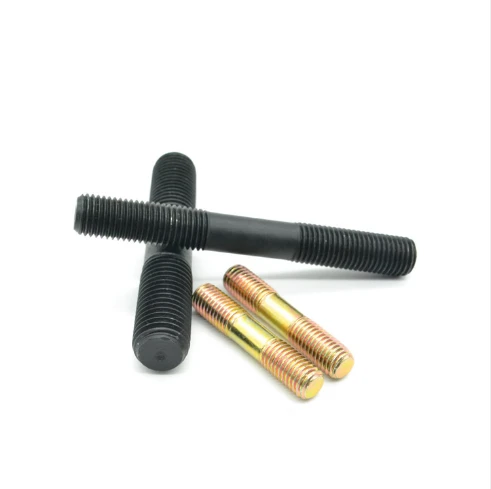Factories Producing Lead Washers for Various Industrial Applications and Their Benefits
dec. . 20, 2024 02:13 Back to list
Factories Producing Lead Washers for Various Industrial Applications and Their Benefits
The Role of Lead Washers in Industrial Applications
Lead washers, though seemingly simple components, play a crucial role in various industrial applications. These small but significant elements are primarily used to ensure a tight seal and efficient functioning of machinery. In this article, we will explore the manufacturing process of lead washers, their applications, advantages, environmental considerations, and the future of lead washer factories.
Manufacturing Process
The production of lead washers begins with high-purity lead, which is sourced from reliable suppliers. Factories utilize various methods to form washers, including stamping, die-casting, and machining. The stamping process involves cutting out washers from large sheets of lead, while die-casting allows for the creation of complex shapes and sizes. After the initial shaping, the washers undergo quality control measures to ensure they meet industry standards.
The lead is heated to a specific temperature to achieve the desired malleability before it is shaped. Once formed, the washers are often surface-treated to enhance their resistance to corrosion, ensuring durability in their future applications. After quality checks, the washers are packaged for distribution.
Applications
Lead washers are widely used in industries such as construction, automotive, and aerospace, where a reliable seal is critical for preventing leaks and ensuring optimal performance of machinery and equipment. In the construction sector, for instance, lead washers are employed in plumbing applications where pipes and fittings require secure sealing to avoid water leaks. Similarly, in the automotive industry, they are often found in brake systems and engine components, where they help maintain pressure and prevent fluid loss.
In the aerospace sector, lead washers are crucial in ensuring the integrity of components that experience extreme pressure and temperature variations. The flexibility and malleability of lead make it an ideal choice for creating custom washers that can be tailored to specific applications.
Advantages of Lead Washers
lead washers factories

One of the primary advantages of lead washers is their excellent sealing properties. Lead's unique characteristics allow the washers to conform to uneven surfaces, creating a tight seal that prevents leakage. Moreover, lead is resistant to corrosion, which extends the lifespan of the washers and, consequently, the machinery they support.
Additionally, lead washers can be produced in various sizes and thicknesses, making them versatile for different applications. Their ability to withstand extreme temperatures and pressures further enhances their utility in demanding environments.
Environmental Considerations
Despite the benefits of lead washers, it is essential to address the environmental and health concerns associated with lead. Lead is a toxic heavy metal, and exposure can have serious health implications, especially for workers involved in the manufacturing process. As such, lead washer factories are subject to stringent regulations to ensure the safety of their employees and minimize environmental impact.
Many manufacturers are now exploring alternative materials that can replicate the sealing properties of lead without the associated risks. This shift toward safer materials is part of a broader trend in industries striving to enhance sustainability and reduce their ecological footprint.
The Future of Lead Washer Factories
The future of lead washer factories is likely to be influenced by several factors, including advancements in material science, regulatory changes, and growing environmental awareness. As industries increasingly prioritize sustainability, there may be a shift toward innovative materials that provide similar performance benefits without the negative effects of lead.
Moreover, the adoption of automation and smart manufacturing technologies can enhance production efficiency and quality control processes in lead washer factories. Automation can help streamline the production process, leading to reduced costs and faster turnaround times.
In conclusion, lead washers are more than just peripheral components; they serve essential functions in various industrial applications. While they offer significant advantages, the industry must navigate the associated environmental and health concerns. The future of lead washer factories will likely involve a balance between maintaining performance standards and embracing sustainability through innovation. As industries evolve, the demand for safer, more eco-friendly alternatives will shape the landscape of lead washer manufacturing, potentially leading to a decline in lead usage and a rise in alternative materials that meet the stringent performance criteria necessary for industrial applications.
Latest news
-
Reliable Axle Nuts Supplier | Quality & Precision Fasteners
NewsAug.23,2025
-
Durable Bolts for Lawn Mower Handle - Top Supplier & Manufacturer
NewsAug.22,2025
-
High-Quality Bolts for Lawn Mower Handle Supplier & Manufacturer
NewsAug.21,2025
-
Reliable Axle Nuts Supplier | High-Quality Automotive Parts
NewsAug.19,2025
-
Premium Wire Bolts Suppliers | Durable & Reliable Fasteners
NewsAug.18,2025
-
Leading Metric Wood Screw Companies & Manufacturers
NewsAug.17,2025
